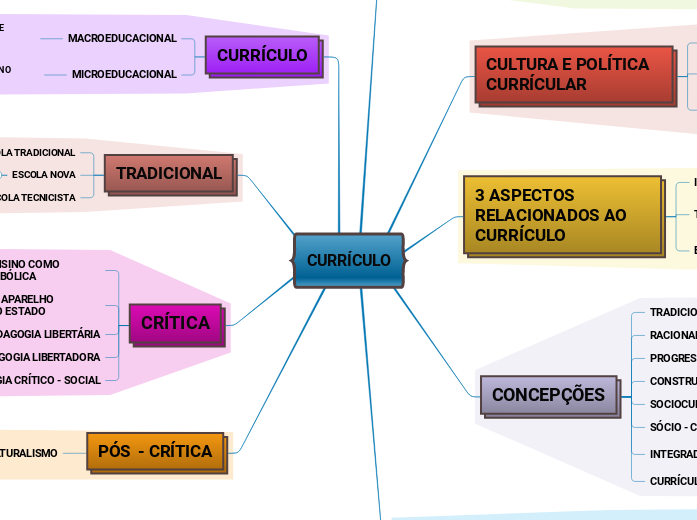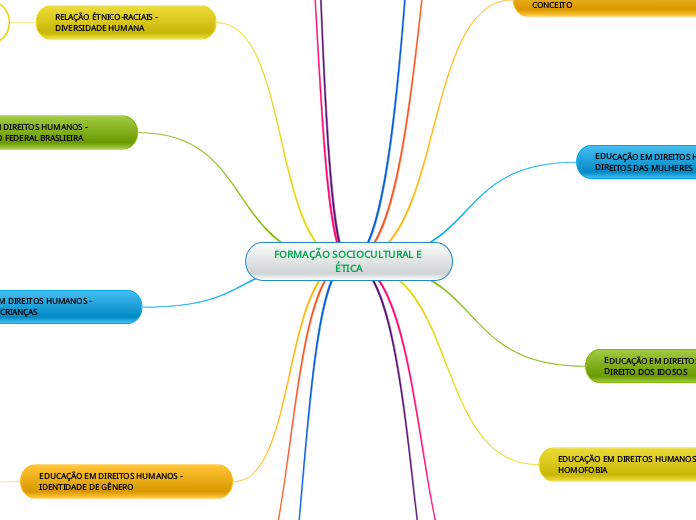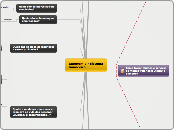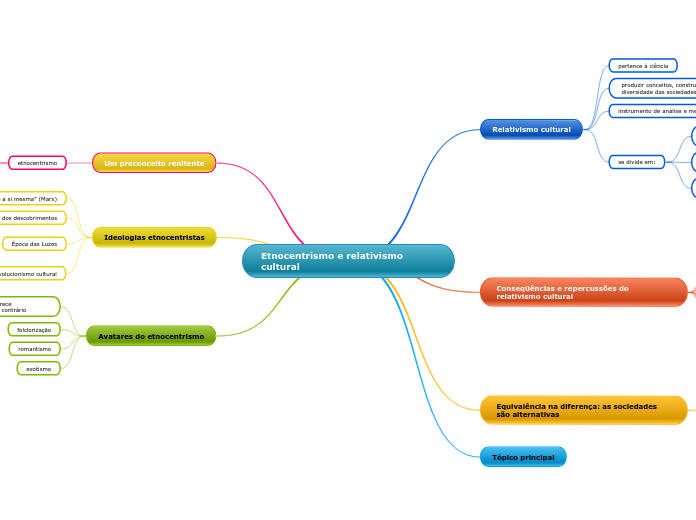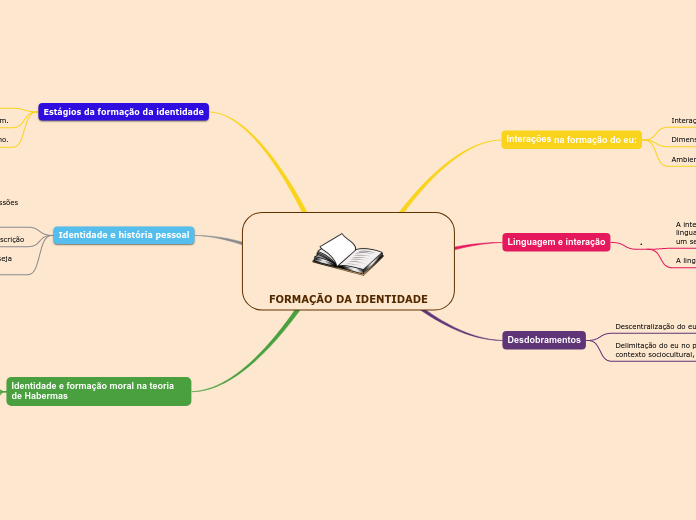CURRÍCULO
The part of speech is a category to which a word is assigned according to its syntactic functions. In English the main parts of speech are noun, pronoun, adjective, determiner, verb, adverb, preposition, conjunction, and interjection.
PÓS - CRÍTICA
A preposition is one of the most exciting parts of grammar. A preposition is used to describe the location of something in relation to something else.
MULTICULTURALISMO
When a preposition consists of one word it is called single or simple preposition.
SUBJETIVIDADE DOS PROFESSORES E ESTUDANTES
CRÍTICA
An interjection is used to express emotion in a sentence.
Think of other interjections!
PEDAGOGIA CRÍTICO - SOCIAL
PEDAGOGIA LIBERTADORA
PEDAGOGIA LIBERTÁRIA
ESCOLA COMO APARELHO IDEOLÓGICO DO ESTADO
SISTEMA DE ENSINO COMO VIOLENCIA SIMBÓLICA
An adverb is used to describe a verb, but it can also describe an adjective or another adverb.
Adverbs normally help paint a fuller picture by describing how something happens.
ESCOLA TECNICISTA
Just, Afterward, Soon, Currently
ESCOLA NOVA
Always, usually, Never
ESCOLA TRADICIONAL
Create sentences
Carefully, Slowly
A numeral is a word or phrase that describes a numerical quantity.
Some theories of grammar use the word 'numeral' to refer to cardinal numbers that act as a determiner to specify the quantity of a noun, for example the 'two' in 'two hats'.
MICROEDUCACIONAL
FORMADO POR CADA ESCOLA, ANO ESCOLAR, TURMA E AULA EM SI.
MACROEDUCACIONAL
FORMADO POR DOCUMENTOS QUE REGULAM OFICIALMENTE OS CONTEÚDOS.
TIPOS DE CURRÍCULO
An article is a word used to modify a noun, which is a person, place, object, or idea. Technically, an article is an adjective, which is any word that modifies a noun.
ABERTO
Indefinite articles are the words 'a' and 'an.' Each of these articles is used to refer to a noun, but the noun being referred to is not a specific person, place, object, or idea. It can be any noun from a group of nouns.
PROFESSOR PARTICIPA DA ELABORAÇÃO DO CURRÍCULO.
FECHADO
It refers directly to a specific noun or groups of nouns.
PROFESSOR DEVE SEGUIR O CONTEÚDO PRESCRITO DO CURRÍCULO.
CONCEPÇÕES
A pronoun is a word that can be used in place of a noun, typically after the noun itself has already been stated.
CURRÍCULO COMO PRODUÇÃO
Unlike demonstrative pronouns, which point out specific items, indefinite pronouns are used for non-specific things. This is the largest group of pronouns. All, some, any, several, anyone, nobody, each, both, few, either, none, one, and no one are the most common.
CONFLITOS COM A REALIDADE
INTEGRADO
Relative pronouns are used to add more information to a sentence. Which, that, who (including whom and whose), and where are all relative pronouns.
INTER - RELAÇÕES ENTRE AS DISCIIPLINAS
SÓCIO - CRÍTICO
Interrogative pronouns are used in questions. Although they are classified as pronouns, it is not easy to see how they replace nouns. Who, which, what, where, and how are all interrogative pronouns.
PROBLEMATIZAÇÃO
SOCIOCULTURAL
Reciprocal pronouns are used for actions or feelings that are reciprocated. The reciprocal pronouns are each other and one another.
INTERAÇÃO ENTRE SUJEITO E OBJETO
CONSTRUTIVISTA
A reflexive pronoun ends with ...self or ...selves and refers to another noun or pronoun in the sentence (usually the subject of the sentence). The reflexive pronouns are myself, yourself, herself, himself, itself, ourselves, yourselves, and themselves.
O ALUNO É ATIVO
PROGRESSISTA
Demonstrative pronouns are used to demonstrate (or indicate). This, that, these, and those are all demonstrative pronouns.
CENTRADO NO ALUNO
RACIONAL TECNICISTA
Possessive pronouns are used to show possession. The possessive pronouns are mine, yours, his, hers, ours, and theirs.
SISTEMA DE PRODUÇÃO
TRADICIONAL
The personal pronouns are I, you, he, she, it, we, they. More often than not (but certainly not always), they replace nouns representing people.
O ALUNO É PASSIVO
3 ASPECTOS RELACIONADOS AO CURRÍCULO
An adjective is a word that's used to describe a specific noun and to provide more detail to the listener.
EFEITOS
OS RESULTADOS OBTIDOS DO ENSINO E DA APRENDIZAGEM.
TRANSAÇÕES
Superlative adjectives demonstrate a higher level of comparison between entities.
EXPERIENCIAS VIVENCIADAS QUANDO O CURRÍCULO ESTÁ SENDO IMPLEMENTADO.
INTENÇÕES
Expresses a comparison between two entities or groups of entities in quality or degree.
METAS, VALORES E DIREÇÃO.
CULTURA E POLÍTICA CURRÍCULAR
A noun is defined as a person, place, thing or idea. Proper nouns always begin with a capital letter. Common nouns, which are general words, such as 'cars,' are not capitalized.
CURRÍCULO OCULTO
A noun which refers to a group of things/people.
EXPERIENCIAS VIVIDAS PELOS ESTUDANTES QUE CONTRIBUEM COM A APRENDIZAGEM.
CURRÍCULO REAL
Countable nouns are nouns that can be counted, even if the number might be extraordinarily high.
Uncountable nouns are nouns that come in a state or quantity which is impossible to count; liquids are uncountable, as are things which act
like liquids.
O QUE ACONTECE DENTRO DA SALA DE AULA.
CURRÍCULO FORMAL
Proper nouns are the names of specific people or places. They should always begin with a capital letter.
EXPRESSO NAS DIRETRIZES E NORMAS PRESCRITAS.
ESTÃO LIGADOS
A verb is an action word or 'doing' word that signifies movement in some way.
PODER
A modal is a type of auxiliary (helping) verb that is used to express: ability, possibility, permission or obligation. The main modal verbs in the English language are: can, could, may, might, must, shall, should, will, would.
AS PESSOAS PODEM INTERVIR NA SOCIEDADE.
CONHECIMENTO
A linking verb connects the subject with a word that gives information about the subject, such as a condition or relationship.
AS PESSOAS SÃO CAPAZES DE COMPREENDER A REALIDADE.
ENSINO
A verb with its own meaning: a verb that is not an auxiliary verb.
A ESCOLA INFLUENCIA NAS PRÁTICAS CULTURAIS ATRAVÉS DO ENSINO.
